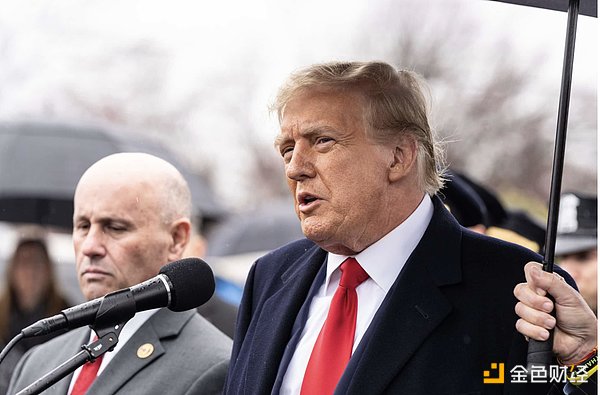Author: Veronica Irwin Source: unchainedcrypto Translator: Shan Eoba, Jinse Finance
The blockchain industry organization The Digital Chamber wrote to the acting director of the Office of Government Ethics (OGE), Shelley Finlayson, on Wednesday, requesting the removal of the requirement for federal employees to hold "only a minimal amount" of cryptocurrencies. The current regulations severely limit the options for President-elect Donald Trump to choose a "crypto czar" role. Sources say Trump's future administration may appoint an OGE director willing to relax this rule.
Cody Carbone, Chairman of the Digital Chamber, said he wrote this letter to "signal to Trump's transition team that this is an issue they need to focus on."
Crypto Czar: Role and Candidates
Two crypto policy advocates not affiliated with the chamber revealed that there has been talk on Capitol Hill this week that Trump may accept Carbone and his organization's proposal. At the Bitcoin 2024 conference in Nashville this summer, Trump said he would create a "crypto advisory council" to help him make legislative and regulatory decisions. Additionally, there are rumors that he may hire a "crypto czar" to serve in an advisory role. According to six Washington sources active in crypto policy lobbying and advocacy, Trump plans to establish both a "crypto czar" and a "crypto advisory council." However, the specific individuals for these roles may not be determined until later this month, after cabinet and Republican leadership appointments are finalized.
However, under the current OGE ethics rules, appointing a crypto czar is much more difficult than choosing members of the advisory council. The advisory council can be composed of successful crypto industry entrepreneurs, such as bitcoin mining company executives or other crypto business leaders who have recently met with Trump. The crypto czar, on the other hand, should not have obvious conflicts of interest in policy, requiring both extensive Washington political experience and a deep understanding of the impact of policy on the crypto industry.
As a result, potential czar candidates are often lesser-known individuals. Some of the names mentioned by sources include Ron Hammond, the government relations director of the Blockchain Association, who meets the "minimal amount" crypto holding requirement, but at 31 years old, he may be considered too young for a senior White House position.

Crypto Natives in the Trump Administration?
However, this letter not only suggests relaxing the "minimal amount" crypto holding restriction for the crypto czar role, but for all federal employees. This would include hundreds, if not thousands, of positions involved in cryptocurrency regulation, who are currently prohibited from holding cryptocurrencies. While the rules do not explicitly list the applicable agencies, they enumerate some restricted positions, such as policy analysts at the Treasury Department, Department of Homeland Security employees, and positions at the Securities and Exchange Commission (SEC).
Trump promised at the Bitcoin 2024 conference to "fire" the current SEC chair, Gary Gensler, on his first day in office, although he may not have the legal authority to do so. Even so, it is widely expected that Gensler will either resign before Trump takes office or leave after being demoted to a commissioner - a legal action Trump can take.
Since the election, cryptocurrency prices have soared, in part because the market believes Trump will appoint a chair less inclined to take enforcement action against crypto companies and more lenient in interpreting securities laws. If the restriction on SEC staff holding cryptocurrencies is lifted, Trump's candidate selection pool will be greatly expanded. However, this would also create an obvious conflict of interest: the SEC chair could hold cryptocurrencies while shaping related regulatory policies.








